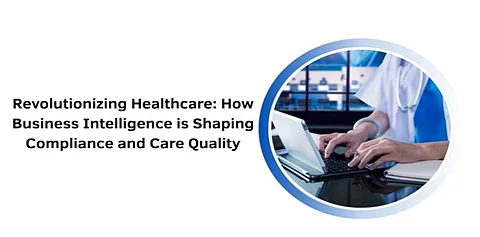

In an era of value-based care, healthcare organizations are under immense pressure to meet stringent performance standards while simultaneously improving patient outcomes. Traditional methods of tracking compliance and delivering high-quality care, which heavily rely on manual processes, are no longer sufficient. In this landscape, business intelligence (BI) solutions, as explored by Satya Manesh Veerapaneni, offer groundbreaking innovations that automate compliance and enhance healthcare delivery.
The shift to value-based care focuses on patient outcomes and cost efficiency, contrasting with the traditional fee-for-service model. The key to this is adherence to regulatory benchmarks like HEDIS measures and CMS Star Ratings. Historically, compliance required manual chart reviews, which were resource-intensive and error-prone. The introduction of business intelligence (BI) systems has streamlined this process by automating the identification of care gaps, enabling real-time monitoring and prompt action, improving outcomes, and optimizing resource use.
Data integration is crucial in healthcare BI solutions, breaking down silos between clinical, pharmacy, and lab data. Traditionally, these data sets are isolated, making it hard to get a comprehensive view of patient care. BI tools address this by consolidating data into centralized repositories for real-time analysis and gap identification. Using SQL-based ETL pipelines and natural language processing (NLP), BI tools extract and standardize unstructured data, such as clinical narratives, reducing manual entry. This streamlined process offers healthcare providers a more complete view of patient information, enabling proactive management of chronic conditions and prevention of complications by focusing on high-risk patients based on real-time insights.
BI technologies enable real-time identification of care gaps, allowing healthcare teams to take proactive action rather than waiting for retrospective reports. For example, missed screenings or unmanaged chronic conditions are flagged immediately, ensuring timely interventions. BI systems also provide personalized task lists integrated into existing workflows, prioritizing tasks based on risk and urgency. This proactive approach improves patient outcomes, enhances adherence to quality measures, and supports value-based care models by delivering timely, tailored care.
The use of centralized performance dashboards further increase the capabilities of BI tools. These dashboards are interactive and allow healthcare stakeholders – whether they are frontline clinicians or executive leaders to see in real time their care performance from a multidimensional perspective. For example, dashboards can show clinicians quality indicators pertaining to preventive care completion rates where performance information is tied to daily care actions.
Executive dashboards provide a way for leaders to examine overall quality trends or financial outcomes to determine areas of focus. In addition to providing summary and detail analytics summaries to organizations, dashboards provide operative insight and timely dialogue for decision making. Additionally, transparency is essential in improving collaboration and ensuring the entire healthcare team is moving in a shared direction toward a common goal whether it is closing care gaps or maintaining regulatory compliance.
BI tools improve communication between providers and payers in healthcare as they create efficiencies in transferring data and automating quality measures. Providers and payers dont have to spend time manually entering data into disparate systems, which minimizes error while allowing providers to meet deadlines to comply with reporting - very important for value-based reimbursement. BI provides secure, standardized interfaces for sharing data so the reporting happens more quickly and accurately to multiple payers while ensuring consistency in the data across the board. This ultimately leads to transparency and stronger partnerships with both providers and payers consuming reliable data so the reporting process for healthcare hopefully improves as a whole.
In healthcare, putas are a collaborative effort between many practice teams, including clinical teams, IT teams, quality improvement teams, and finance teams. By working together across many roles, BI supports clinical workflows and helps clinicians deliver patient care. Involving different groups in the decision-making process creates an opportunity for organizations to implement BI supports that are technically sound, strategically aligned, and will improve care and align organizational priorities.
The way business intelligence solutions are being integrated into healthcare compliance tracking marks a significant change towards more efficient, effective, and patient-focused care. By automating compliance tasks, offering real-time performance insights, and fostering better collaboration among stakeholders, BI systems empower healthcare organizations to meet the challenges of value-based care while improving patient outcomes. As the healthcare landscape keeps evolving, those organizations that adopt these innovations will be in a stronger position to succeed in a competitive, outcome-oriented environment.
In conclusion, as Satya Manesh Veerapaneni points out, the future of healthcare compliance is being shaped by the capabilities of business intelligence. These advancements are not just enhancing how compliance is monitored—they're revolutionizing the delivery of healthcare, leading to better results for patients and more sustainable success for providers.
